Bubblegum is rock and pop music in a catchy and upbeat style that is marketed for children and adolescents. The term also refers to a more specific rock and pop subgenre, originating in the United States in the late 1960s, that evolved from garage rock, novelty songs, and the Brill Building sound, and which was also defined by its target demographic of preteens and young teenagers. The Archies' 1969 hit "Sugar, Sugar" was a representative example that led to cartoon rock, a short-lived trend of Saturday-morning cartoon series that heavily featured pop rock songs in the bubblegum vein.
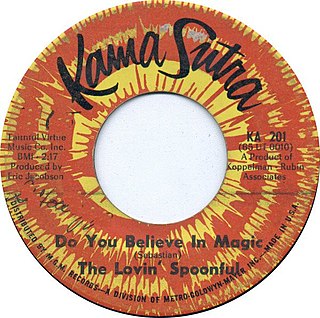
"Do You Believe in Magic" is a song by American rock band the Lovin' Spoonful, written by John Sebastian in 1965. The single peaked at number 9 on the Billboard Hot 100 chart. In 1978, Shaun Cassidy reached the Top 40 with his cover version.

"Superwoman " is a 1972 soul track by Stevie Wonder. It was the second track on Wonder's Music of My Mind album, and was also released as the first single. The song reached a peak of number 33 on the Billboard Hot 100 chart.
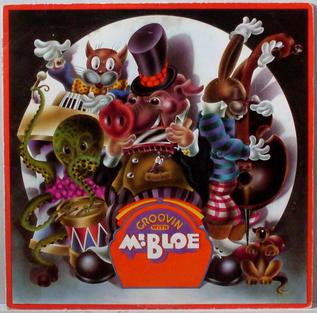
Mr. Bloe was the name given to the musicians who performed the single "Groovin' with Mr. Bloe", which was a hit in 1970 in the UK for Dick James Music (DJM). These included Harry Pitch on harmonica, and Zack Laurence on piano.
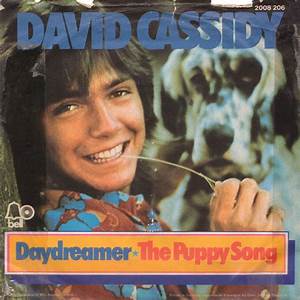
"Daydreamer" is a song by the American singer David Cassidy.

"Another Saturday Night" is a 1963 hit single by Sam Cooke from the album Ain't That Good News. The song was written by Cooke while touring in England when staying in a hotel where no female guests were allowed. It reached No. 10 on the Billboard Hot 100 and was No. 1 on the R&B chart for a single week. In the UK, the song peaked at No. 23 on the UK Singles Chart.
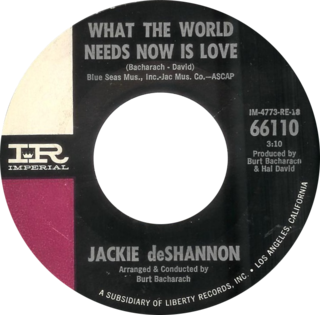
"What the World Needs Now Is Love" is a 1965 popular song with lyrics by Hal David and music composed by Burt Bacharach. First recorded and made popular by Jackie DeShannon, it was released on April 15, 1965, on the Imperial label after a release on sister label Liberty records the previous month was canceled. It peaked at number seven on the US Hot 100 in July of that year. In Canada, the song reached number one.

"Country Road" is a song written and performed by American singer-songwriter James Taylor, released in February 1971 by Warner Bros. Records. It is the third single from Taylor's second studio album, Sweet Baby James. "Country Road" is also featured on James Taylor's 1976 Greatest Hits record. The song has been played at most of his concerts since 1970. Randy Meisner, later of the Eagles, played bass on the album version.

"Please Mr. Please" is a song written by Bruce Welch and John Rostill, both members of British pop singer Cliff Richard's backing band, The Shadows. Welch had originally recorded the song himself in 1974 with no commercial success.

"Beach Baby" is a song by the British band The First Class. Written by John Carter and his wife, Gillian (Jill) Shakespeare, the song became the band's only substantial hit. The subject of the lyrics is not holiday love, but a broken love relationship between two high school students in Los Angeles in the 1950s.
"Now Is the Time" is a pop song written in 1976 by Biddu. It was recorded that year by Jimmy James and the Vagabonds. The track appeared in the Top 10 of the UK Singles Chart.

"That Same Old Feeling" is the title of a pop song composed by John Macleod and Tony Macaulay which in 1970 was a Top Ten UK hit for Pickettywitch, an English band fronted by Polly Brown. In the US the Pickettywitch single vied with a rival version by The Fortunes, with both versions scoring well-enough regionally to reach the Top 70 of the Hot 100, the national hit parade maintained by Billboard magazine.
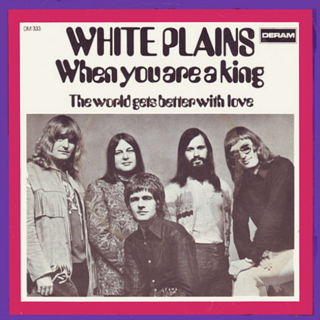
"When You Are a King" is a 1971 pop song by British band White Plains. It was written by John and Roger Hill, in contrast to most White Plains songs that were written by Roger Cook and Roger Greenaway. Roger Greenaway did produce the song.
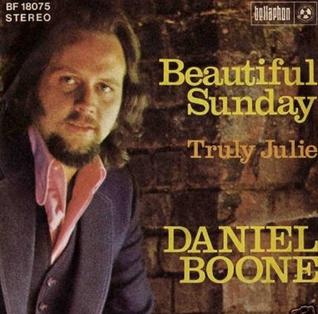
"Beautiful Sunday" is a song written by Daniel Boone and Rod McQueen and performed by Boone. It appeared on his 1972 album Beautiful Sunday and was produced by Larry Page and arranged by Boone.
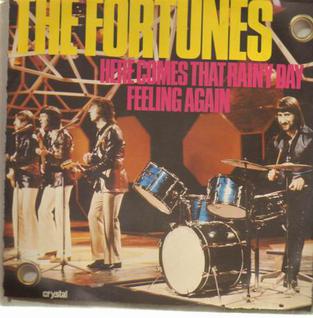
"Here Comes That Rainy Day Feeling Again" is the title of a pop song composed by Tony Macaulay, Roger Cook, and Roger Greenaway; it became the third U.S. Top 40 hit for The Fortunes in 1971, and their fifth in Canada.

"Uno tranquillo" is a song by Italian singer Riccardo Del Turco, released as a single in 1967. It was not as successful as his previous single, "Figlio unico", which was a top-ten hit in Italy, and "Uno tranquillo" only peaked at number 21. However, the song is notable for being covered in English as "Suddenly You Love Me" by the Tremeloes and in French as "Siffler sur la colline" by Joe Dassin.
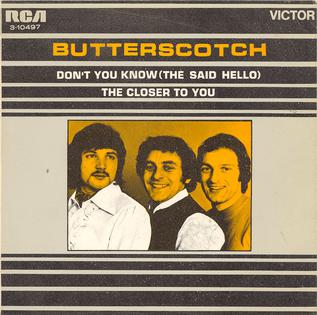
"Don't You Know (She Said Hello)" is a 1970 song by British band Butterscotch. It was written and produced by the three group members, the songwriting team of Christian Arnold, David Martin, and Geoff Morrow.

"Rainbow" is a song by Scottish rock band the Marmalade, released as a single in June 1970. It peaked at number 3 on the UK Singles Chart.
"Funny, Funny" is a song by British band the Sweet released in January 1971. It was the first single from their debut album Funny How Sweet Co-Co Can Be and became their first chart hit, peaking at number 13 on the UK Singles Chart.
"The Banner Man" is a 1971 song by the British pop band Blue Mink. The song managed to reach the top ten on the UK charts peaking at #3 in May 1971. It was released as a single with the B-side "Mind Your Business". The single was written by Blue Mink founders Roger Cook and Roger Greenaway.
















